Top 10 Most Competitive Economies In The World
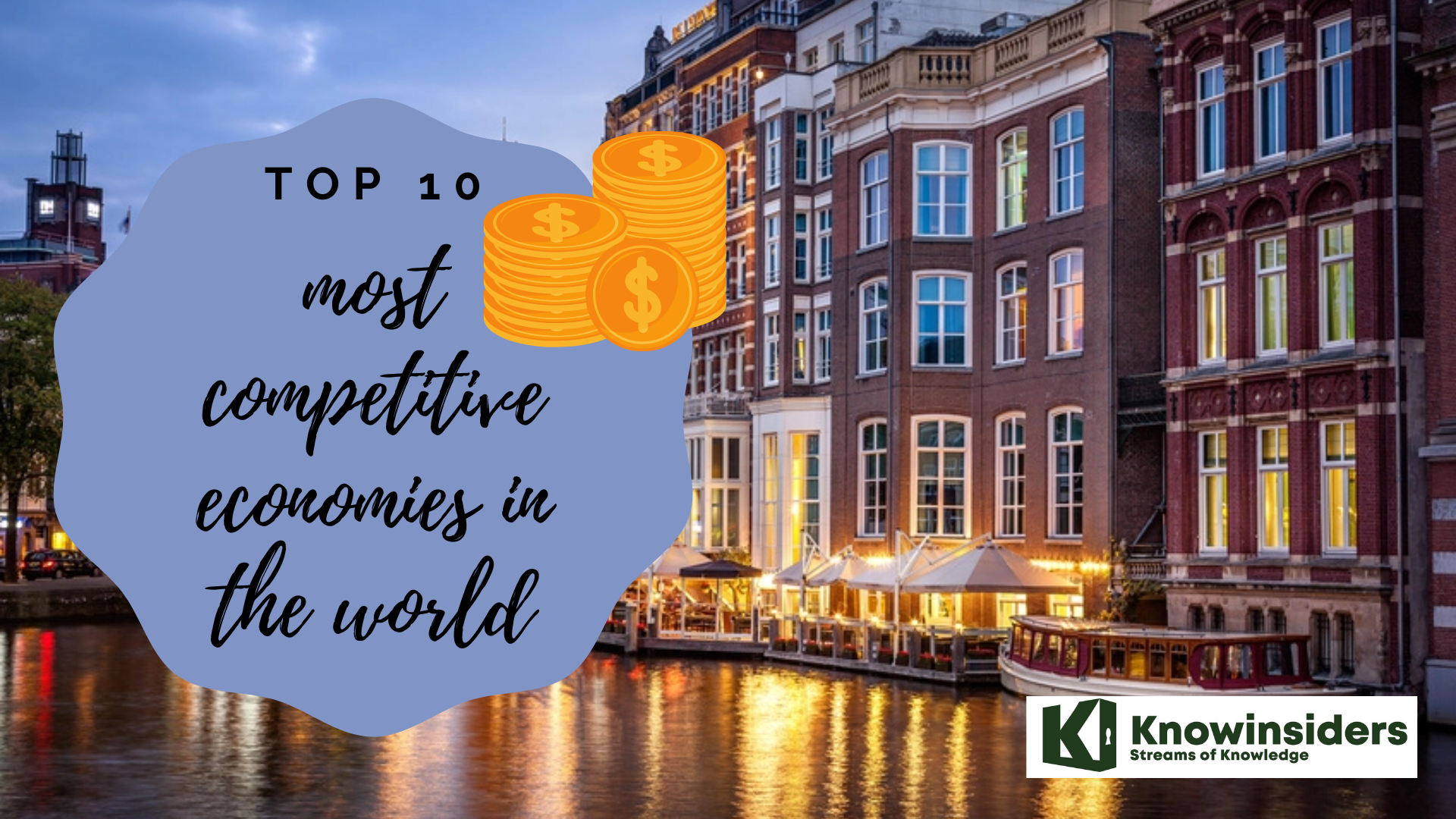 |
Switzerland has taken crown as the world's most competitive economy, according to the World Competitiveness Yearbook 2021 published by the Institute for Management Development World Competitiveness Center.
Sweden and Denmark come in second and third place, respectively, followed by Netherlands and Singapore.
The IMD World Competitiveness Ranking of 64 economies saw China edge up to 16th from the 20th spot it occupied last year.
Let's see the top 10 most competitive economies in the world.
List of top 10 most competitive economies in the world
10. United States
9. UAE
8. Taiwan, China
7. Hong Kong, China
6. Norway
5. Singapore
4. Netherlands
3. Denmark
2. Sweden
1. Switzerland
Detailed information of top 10 most competitive economics in the world
10. United States
 |
| Photo: Lonely Planet |
The United States’ economic freedom score is 74.8, making its economy the 20th freest in the 2021 Index. Its overall score has decreased by 1.8 points, primarily because of a decline in fiscal health. The United States is ranked 3rd among 32 countries in the Americas region, and its overall score is above the regional and world averages.
The United States received its lowest score and lowest ranking ever in the Index, although it remains “mostly free.” The major obstacles to greater economic freedom in the United States continue to be excessive government spending, unsustainable levels of debt, and intrusive regulation of the health care and financial sectors.
IMPACT OF COVID-19: As of December 1, 2020, 270,642 deaths had been attributed to the pandemic in the United States, and the economy was forecast to contract by 4.3 percent for the year.
9. UAE
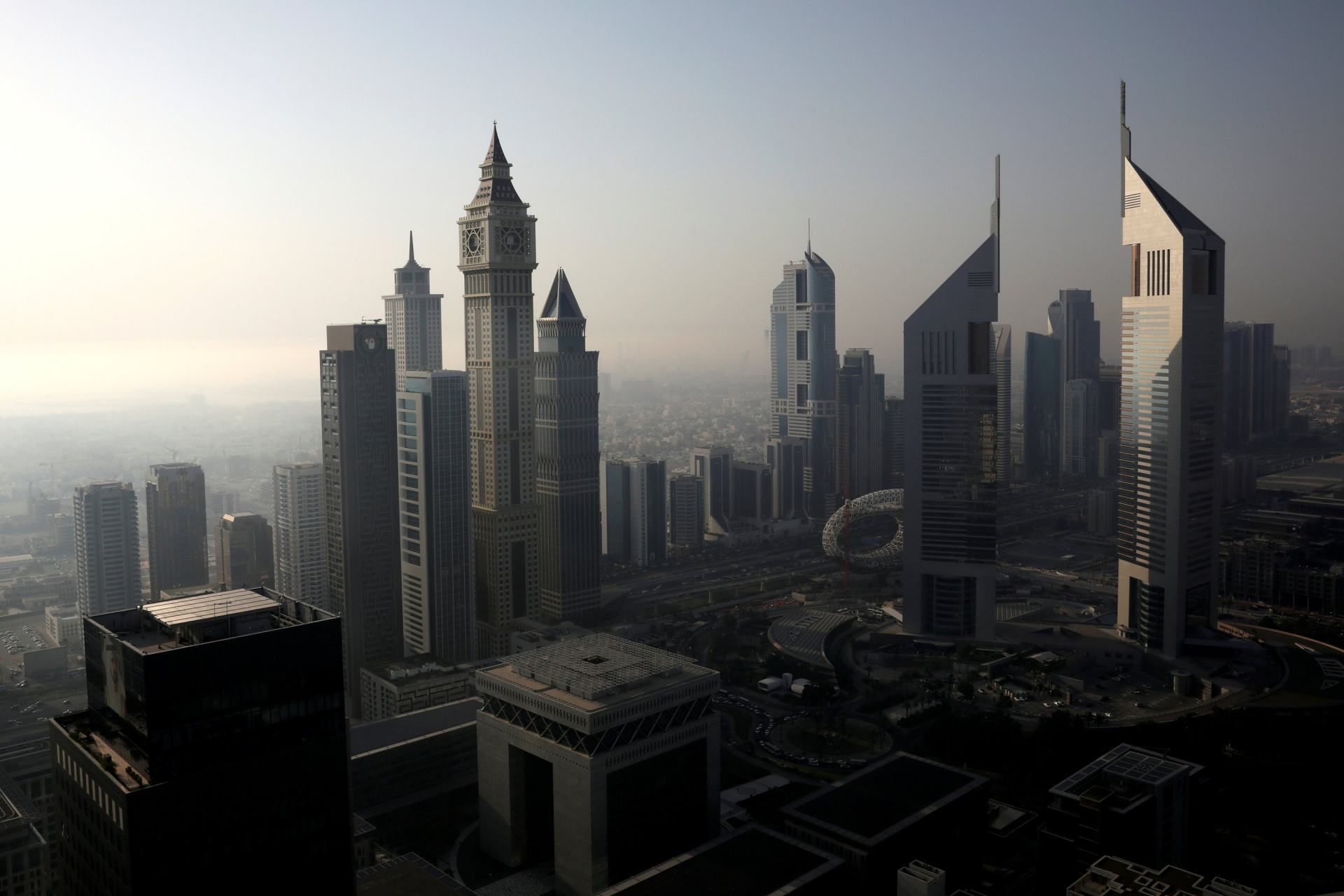 |
| Photo: Dailysabah |
The economy of the United Arab Emirates (or UAE) is the fourth largest in the Middle East (after Turkey, Saudi Arabia and Iran), with a gross domestic product (GDP) of US$421 billion (AED 1.5 trillion) in 2020.
The UAE has been successfully diversifying its economy, particularly in Dubai, but still remains heavily reliant on revenues from petroleum and natural gas, which continue to play a central role in its economy, especially in Abu Dhabi. More than 85% of the UAE's economy was based on the oil exports in 2009. While Abu Dhabi and other UAE emirates have remained relatively conservative in their approach to diversification, Dubai, which has far smaller oil reserves, was bolder in its diversification policy. In 2011, oil exports accounted for 77% of the UAE's state budget.
Tourism is one of the bigger non-oil sources of revenue in the UAE, with some of the world's most luxurious hotels being based in the UAE. A massive construction boom, an expanding manufacturing base, and a thriving services sector are helping the UAE diversify its economy. Nationwide, there is currently $350 billion worth of active construction projects.
The UAE is a member of the World Trade Organization and OPEC.
The UAE government has long been investing in the economy to diversify and reduce its dependence on oil revenue.
8. Taiwan, China
 |
| Photo: East Asia Forum |
The economy of Taiwan is a highly developed capitalist economy with most government firms being privatized. It is the seventh largest in Asia and 20th-largest in the world by purchasing power parity allowing Taiwan to be included in the advanced economies group by the International Monetary Fund and gauged in the high-income economies group by the World Bank. Taiwan is the most technologically advanced computer microchip maker in the world.
Taiwan has transformed itself from a recipient of U.S. aid in the 1950s and early 1960s to an aid donor and major foreign investor, with investments primarily centered in Asia. Private Taiwanese investment in mainland China is estimated to total in excess of US$150 billion, and official tallies cite Taiwan as having invested a comparable amount in Southeast Asia.
7. Hong Kong, China
 |
| Photo: Wikipedia |
Since China began to open up and reform its economy in 1978, GDP growth has averaged almost 10 percent a year, and more than 800 million people have been lifted out of poverty. There have also been significant improvements in access to health, education, and other services over the same period.
China is now an upper-middle-income country. It will be important going forward that poverty alleviation efforts increasingly shift to address the vulnerabilities faced by the large number of people still considered poor by the standards of middle-income countries, including those living in urban areas.
China’s high growth based on resource-intensive manufacturing, exports, and low-paid labor has largely reached its limits and has led to economic, social, and environmental imbalances. Reducing these imbalances requires shifts in the structure of the economy from low-end manufacturing to higher-end manufacturing and services, and from investment to consumption.
6. Norway
 |
| Photo: Lonely Planet |
Norway’s economic freedom score is 73.4, making its economy the 28th freest in the 2021 Index. Its overall score is unchanged, with an improvement in judicial effectiveness offset by declines in property rights and other scores. Norway is ranked 15th among 45 countries in the Europe region, and its overall score is above the regional and world averages.
Norway’s economy remains in the ranks of the mostly free this year. As has been the case for many years, high taxes and heavy government spending remain the major obstacles to greater economic freedom. Reducing spending would be complicated, however, because much of the government’s budget is structured around revenue from Equinor, the oil, gas, and wind-energy company that is two-thirds state owned.
IMPACT OF COVID-19: As of December 1, 2020, 334 deaths had been attributed to the pandemic in Norway, and the economy was forecast to contract by 2.8 percent for the year.
5. Singapore
 |
| Photo: Traveloka |
Singapore’s economic freedom score is 89.7, making its economy the freest in the 2021 Index. Its overall score has increased by 0.3 point, primarily because of an improvement in the score for government spending. Singapore is ranked 1st among 40 countries in the Asia–Pacific region, and its overall score is well above the regional and world averages.
Singapore’s economy has been ranked the freest in the world again this year for the second year in a row. Singapore remains the only country in the world that is considered economically free in every Index category, although its indicator scores for fiscal health and financial freedom just barely make it over the threshold into the highest category.
IMPACT OF COVID-19: As of December 1, 2020, 29 deaths had been attributed to the pandemic in Singapore, and the economy was forecast to contract by 6.0 percent for the year.
4. Netherlands
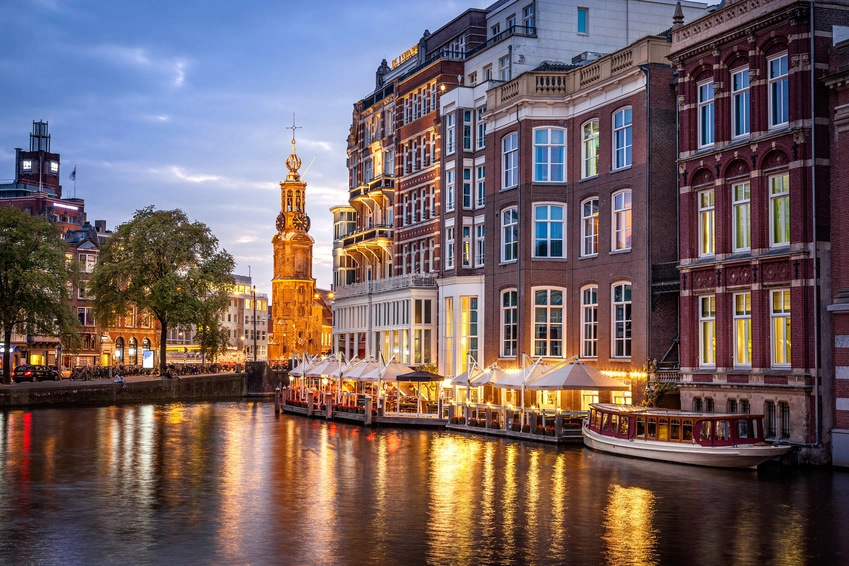 |
| Photo: Global Compiance News |
The Netherlands’ economic freedom score is 76.8, making its economy the 16th freest in the 2021 Index. Its overall score has decreased by 0.2 point, primarily because of a decline in trade freedom. The Netherlands is ranked 9th among 45 countries in the Europe region, and its overall score is above the regional and world averages.
The economy of the Netherlands remains in the mostly free category where it has been for more than 20 years. The primary obstacles to greater economic freedom, as always, are a high tax burden and too much government spending. A positive note, however, has been the government’s strict discipline in avoiding heavy public debt.
IMPACT OF COVID-19: As of December 1, 2020, 9,518 deaths had been attributed to the pandemic in the Netherlands, and the economy was forecast to contract by 5.4 percent for the year.
3. Denmark
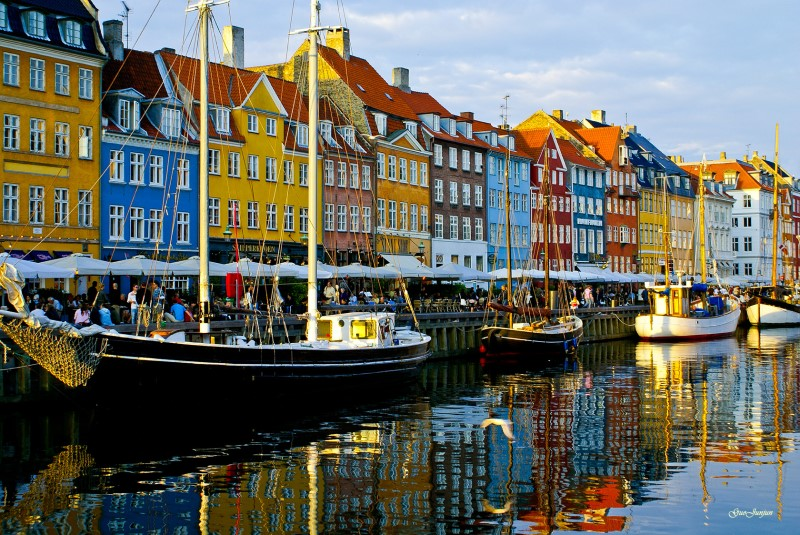 |
| Photo: Travelgear |
Denmark’s economic freedom score is 77.8, making its economy the 10th freest in the 2021 Index. Its overall score has decreased by 0.5 point, primarily because of a decline in labor freedom. Denmark is ranked 5th among 45 countries in the Europe region, and its overall score is above the regional and world averages.
Were it not for its history of very low scores for tax burden and government spending, Denmark’s economy would be rated as free. Instead, it remains in the mostly free category for the 20th year in a row. Unfortunately, the direction in which the government is going—toward much heavier spending funded by higher taxes—is the opposite of what is needed for greater economic freedom.
IMPACT OF COVID-19: As of December 1, 2020, 846 deaths had been attributed to the pandemic in Denmark, and the economy was forecast to contract by 4.5 percent for the year.
2. Sweden
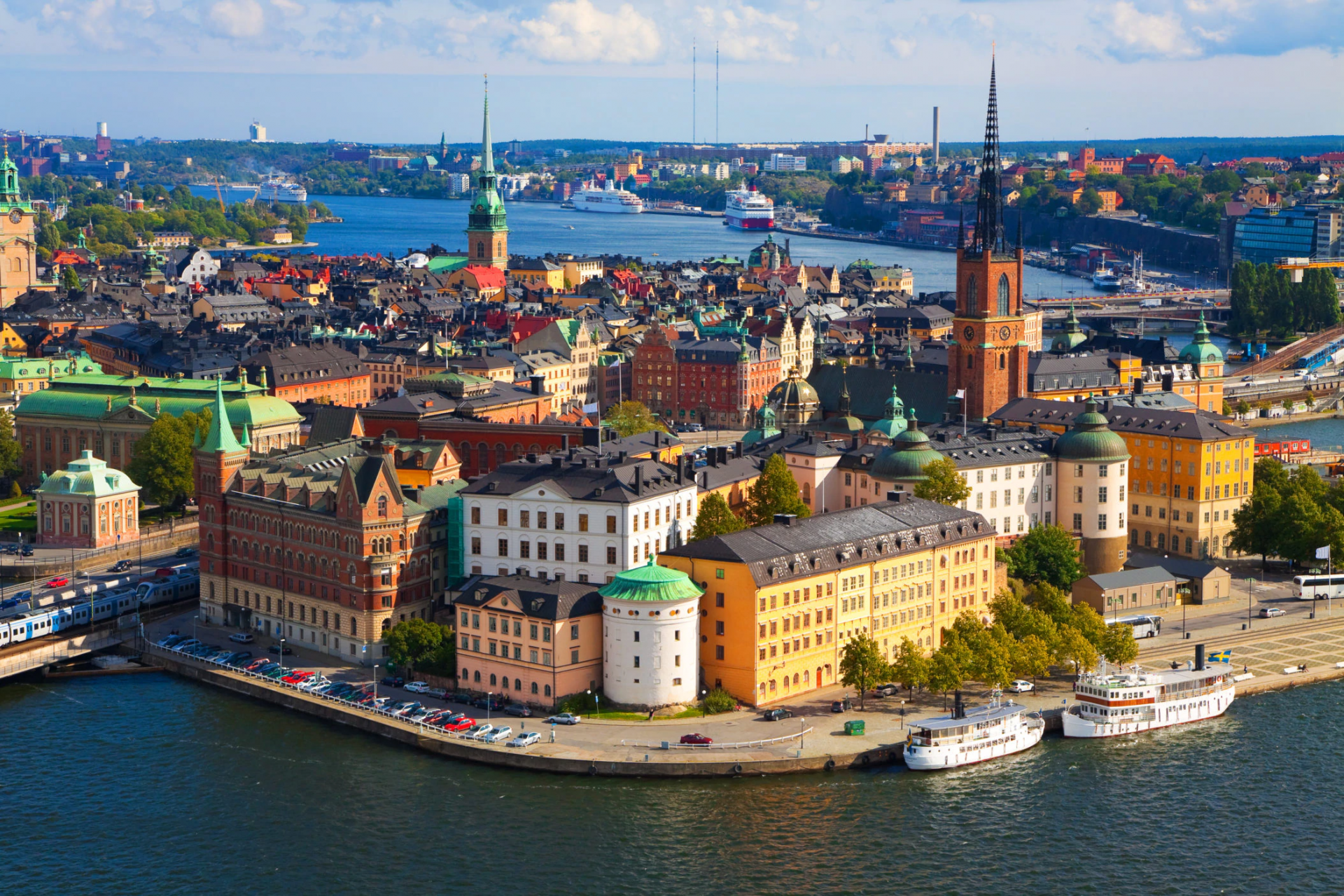 |
| Photo: Department of State |
Sweden’s economic freedom score is 74.7, making its economy the 21st freest in the 2021 Index. Its overall score has decreased by 0.2 point, primarily because of a decline in trade freedom. Sweden is ranked 12th among 45 countries in the Europe region, and its overall score is above the regional and world averages.
The Swedish economy has been rated mostly free for more than a decade. The two biggest drags on Sweden’s economic freedom continue to be very heavy taxation and very high government spending. On the other hand, the country’s scores on the Index rule-of-law indicators (property rights, judicial effectiveness, and government integrity) are among the highest in the world.
IMPACT OF COVID-19: As of December 1, 2020, 6,798 deaths had been attributed to the pandemic in Sweden, and the economy was forecast to contract by 4.7 percent for the year.
1. Switzerland
 |
| Photo: Travel Observed |
Switzerland’s economic freedom score is 81.9, making its economy the 4th freest in the 2021 Index. Its overall score has decreased by 0.1 point, with only small changes registered in individual indicators. Switzerland is ranked 1st among 45 countries in the Europe region, and its overall score is above the regional and world averages.
Switzerland’s economy remains in the free category where it has been for more than a decade. Only four other countries achieved that elite status this year. Economic freedom is well established and institutionalized in Switzerland. Were it not for its perpetual and comparatively low scores on the indicators for tax burden and government spending, Switzerland might well be the top-rated country in the Index.
IMPACT OF COVID-19: As of December 1, 2020, 4,940 deaths had been attributed to the pandemic in Switzerland, and the economy was forecast to contract by 5.3 percent for the year.
 Top 10 Most Popular Beauty Brands In The US Top 10 Most Popular Beauty Brands In The US There are many beauty brands in the US and the world, but there are several brands that their names are so popular to even non-comestic ... |
 Top 10 Most Valuable Football Players in the World: England Stars at Number One Top 10 Most Valuable Football Players in the World: England Stars at Number One Check out The Top 10 Most Valuable Football Players in the World - update July, 2021: Man United, Man City - England Stars at Number ... |
 Top 10 Best Firework Displays To Celebrate US Independence Day (July 4) Top 10 Best Firework Displays To Celebrate US Independence Day (July 4) The US Independence Day (July 4) is coming. One of best ways to celebrate it is firework ... |
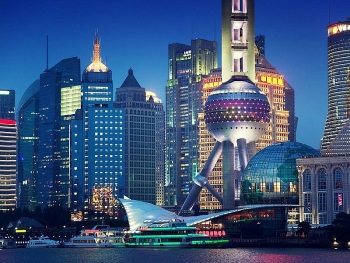 Surprising Facts 'Top 20 Most Expensive Cities' To Live in the World Surprising Facts 'Top 20 Most Expensive Cities' To Live in the World The Mercer Cost of Living Survey 2021 has named a somewhat surprising list as the top most expensive cities to live in the world. |


























